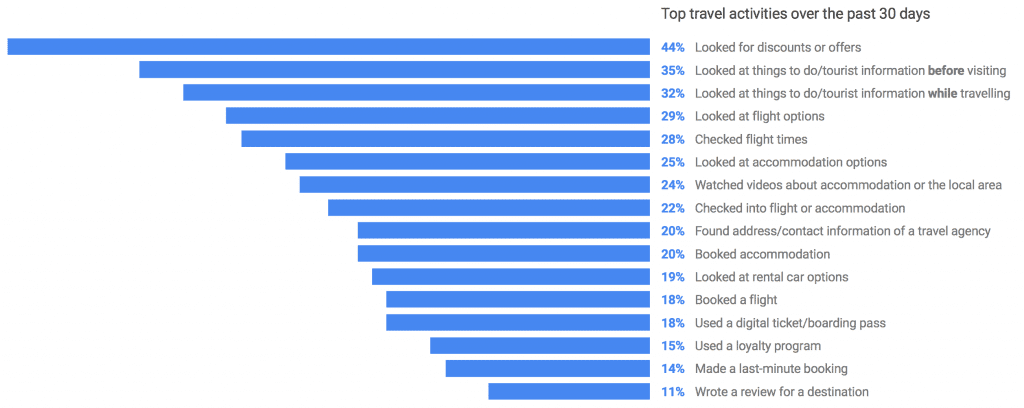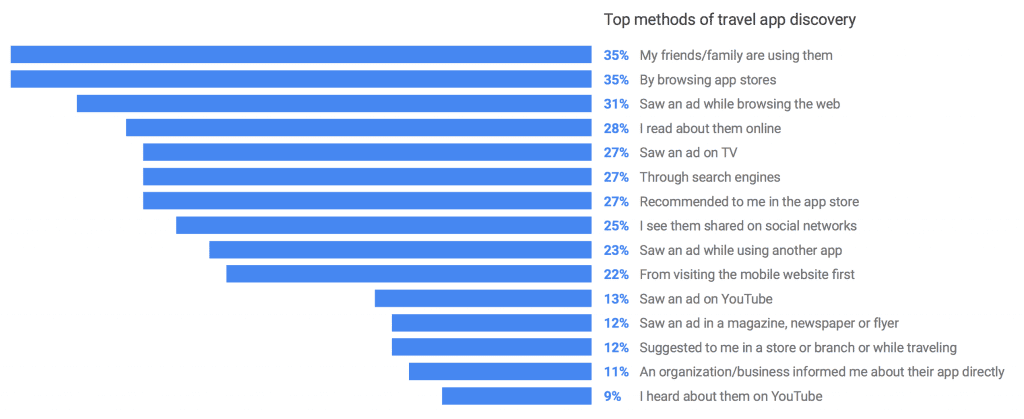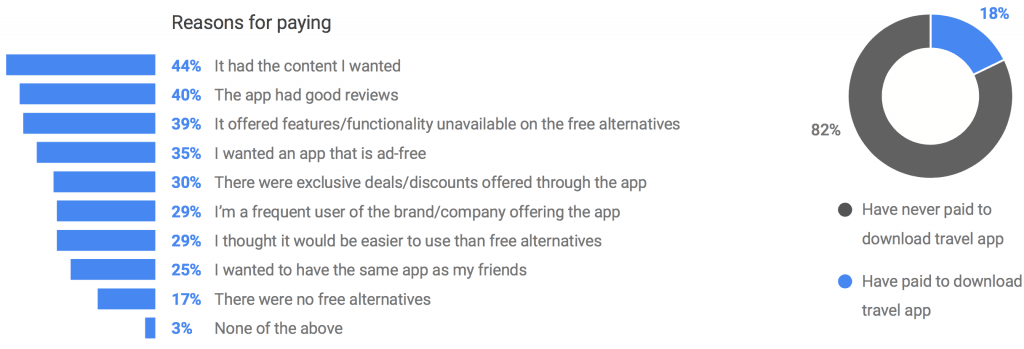Google Thinks Smartphone Users Want Travel Discounts and Destination Advice
Skift Take
There are countless mobile apps available for travel discovery, buying, and in-destination advice.
But what travel content do mobile users actually want apps to provide, and what features are most likely to keep mobile users returning to a particular app once its downloaded?
In October, Google polled 500 smartphone owners aged 18-64 on their digital travel habits, and came away with a few interesting conclusions. Just over half of those polled said they use their device for travel-related activities, and 71 percent of those who do use it weekly for travel purposes.
This is good news from travel companies, but more specific details from the report show the challenges brands face in attracting repeat users.
When traveling, 58 percent of those polled used a travel app while 65 percent used the mobile web. Surprisingly, the average user only has 2.8 mobile travel apps installed on their smartphone, and just 12 percent use a travel app daily. According to Google, Google Maps and other map apps do not count as travel apps.
This means that travelers aren't using very many travel apps, despite the proliferation of options available; they're also more likely to use the mobile web when on the road than an app they've downloaded.
Here are four other important takeaways from the report.
Most travelers are looking for mobile discounts
A breakdown of what mobile users actually want from their mobile travel experience shouldn't be a shock. Discounts, destination info, information on potential activities, and flight options are the top travel activities for smartphone users.
People try travel apps based on personal recommendations
Smartphone users are most likely to use travel apps recommended by friends and family. They also find apps on the app store and from web ads. Travelers are not likely to use apps directly recommended by businesses, which is bad news for corporate travel and expense tools.
Travelers want apps to fix specific pain points
 Why download a travel app at all? Travelers want technology to make specific tasks easier, and they'll try out apps recommended by others.
Why download a travel app at all? Travelers want technology to make specific tasks easier, and they'll try out apps recommended by others.
Travelers pay for content they want
About one in five of those polled had paid to download a travel app before. Nearly half of them said they bought the app because it had content they wanted or had good reviews. Many were likely to buy an app, as well, if it offered more features than a free version.
You can read the full report below.
[gview file="https://skift.com/wp-content/uploads/2016/12/app-marketing-travel-consumer-journey.pdf"]







